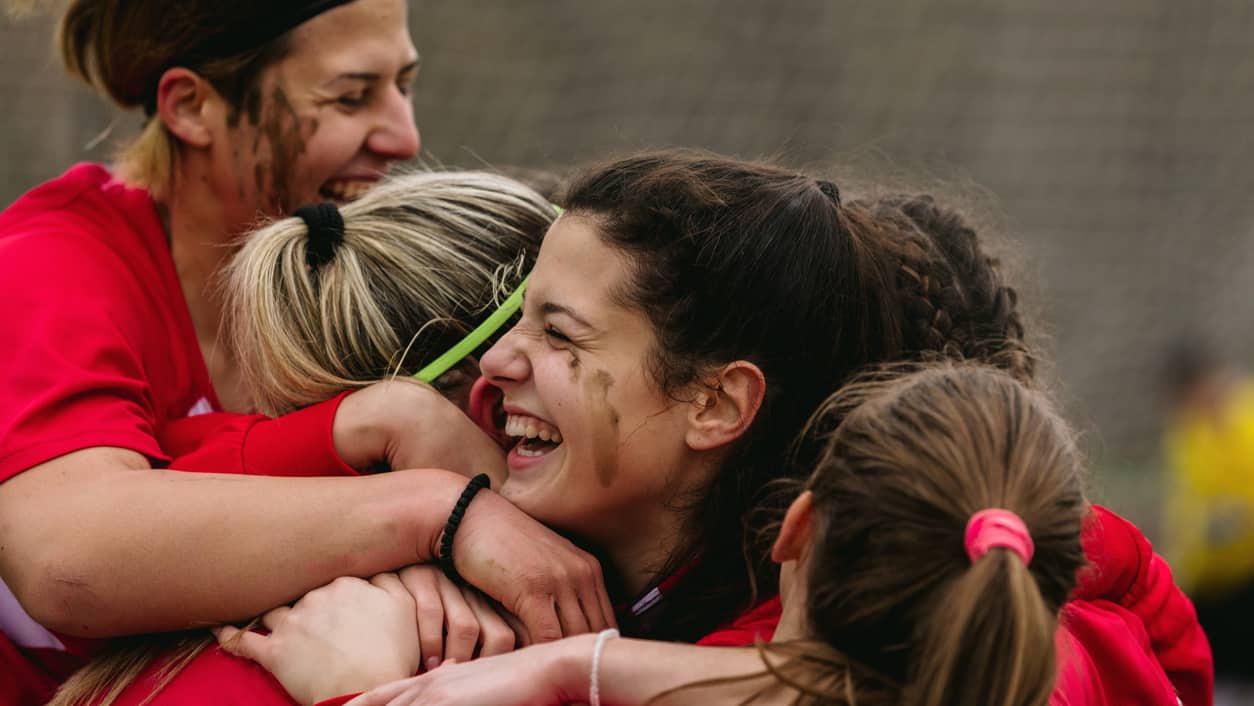Taylor Ritzel: The Row To Rio
Editor’s Note: Taylor Ritzel was 23 years old and not long out of Yale University when she won a gold medal with the U.S. Women’s Rowing team at the 2012 London Olympics. She thought she’d leave the sport and move into a “normal” life after the Games, but she found she wasn’t ready to let go of competition just yet. In a new blog series for STACK, Ritzel will document her attempt to return to Olympic form and make the team heading to Rio in 2016.
April marked eight months since the end of the London Olympic Games. I can’t believe it. It feels like yesterday when I was racing on Dorney Lake or walking through the Olympic Village, proudly sporting my Team USA swag. But all of that is long gone, and only getting farther away.
When the Games were over, I spent some time at home trying to figure out my next move. I decided to move to New York City in the hopes of finding a job. Instead, I found myself in the depths of post-Olympics depression.
I didn’t know exactly what industry I wanted to work in, so finding a job—and working at it with the type of vigor I had during training—wasn’t easy. I eventually landed a gig with a start-up called Thuzio, an online service where people can share experiences with professional athletes and coaches. Once I started, I found it was really tough to find time to stay fit. I gained a deeper respect for “normal” people in the workforce, folks who have a job and a family, commute to work and manage it all while trying to find time for fitness. That’s no small feat. When you’re training for something like the Olympics, you can focus on just that one thing. “Normal” life is a lot more complicated.
I loved working for Thuzio—it was nice to be earning real money (rowing doesn’t exactly bring in the big bucks). I even had something of a social life. But I missed training. I missed being fit, feeling exhausted after a hard day of workouts and feeling satisfied after a successful practice. I missed competition and the thrill of racing. So in March, I left my “normal” life behind and committed myself to a full-time training program. My goal: To make the 2016 Olympic Games in Rio.
Today I am training in Princeton, New Jersey, with the National Women’s Rowing team. I am training full-time—two or three times a day, six to seven days a week—all year round. I still work a bit for Thuzio as a consultant, but my priority is definitely rowing. There isn’t time for much else.
Not everyone who is training receives financial help, although a few receive a small monthly stipend from the USOC. Most of us live with host families and can barely afford food and gas. But we love it, and we wouldn’t want to be anywhere else.
The group I train with is very competitive. There are a lot of new and really strong women, and the talent pool will only get deeper as more women graduate from college and join the national training center. Although I am 24 years old and a veteran (in the sense that I’ve already been part of a Gold Medal team), I know I have a lot of rowing left in me. One of the reasons I returned to the sport is that I know I haven’t reached my maximum potential. I learned so much in the two years I spent on the national team before the London Olympics. I’m so excited to see how much farther I can push my body and mind this time around.
Of course, I will be training smart and listening to my body when something hurts. One needs to pay attention to so many different things when training at the elite level: proper nutrition, attitude, team dynamics, recovery, strength training, motivation, and avoiding distractions, to name a few.
Thankfully, here at the national training center, I’m in the best place in the world to learn the best habits in sport. And during the coming weeks, I’ll be sharing some of the things I learn in future posts. Stay tuned to follow me on my road to Rio.
Learn more about Taylor Ritzel here, or book her for a speaking engagement through Thuzio, an online company that enables members of the public to meet and share experiences with professional athletes.
RECOMMENDED FOR YOU
MOST POPULAR
Taylor Ritzel: The Row To Rio
Editor’s Note: Taylor Ritzel was 23 years old and not long out of Yale University when she won a gold medal with the U.S. Women’s Rowing team at the 2012 London Olympics. She thought she’d leave the sport and move into a “normal” life after the Games, but she found she wasn’t ready to let go of competition just yet. In a new blog series for STACK, Ritzel will document her attempt to return to Olympic form and make the team heading to Rio in 2016.
April marked eight months since the end of the London Olympic Games. I can’t believe it. It feels like yesterday when I was racing on Dorney Lake or walking through the Olympic Village, proudly sporting my Team USA swag. But all of that is long gone, and only getting farther away.
When the Games were over, I spent some time at home trying to figure out my next move. I decided to move to New York City in the hopes of finding a job. Instead, I found myself in the depths of post-Olympics depression.
I didn’t know exactly what industry I wanted to work in, so finding a job—and working at it with the type of vigor I had during training—wasn’t easy. I eventually landed a gig with a start-up called Thuzio, an online service where people can share experiences with professional athletes and coaches. Once I started, I found it was really tough to find time to stay fit. I gained a deeper respect for “normal” people in the workforce, folks who have a job and a family, commute to work and manage it all while trying to find time for fitness. That’s no small feat. When you’re training for something like the Olympics, you can focus on just that one thing. “Normal” life is a lot more complicated.
I loved working for Thuzio—it was nice to be earning real money (rowing doesn’t exactly bring in the big bucks). I even had something of a social life. But I missed training. I missed being fit, feeling exhausted after a hard day of workouts and feeling satisfied after a successful practice. I missed competition and the thrill of racing. So in March, I left my “normal” life behind and committed myself to a full-time training program. My goal: To make the 2016 Olympic Games in Rio.
Today I am training in Princeton, New Jersey, with the National Women’s Rowing team. I am training full-time—two or three times a day, six to seven days a week—all year round. I still work a bit for Thuzio as a consultant, but my priority is definitely rowing. There isn’t time for much else.
Not everyone who is training receives financial help, although a few receive a small monthly stipend from the USOC. Most of us live with host families and can barely afford food and gas. But we love it, and we wouldn’t want to be anywhere else.
The group I train with is very competitive. There are a lot of new and really strong women, and the talent pool will only get deeper as more women graduate from college and join the national training center. Although I am 24 years old and a veteran (in the sense that I’ve already been part of a Gold Medal team), I know I have a lot of rowing left in me. One of the reasons I returned to the sport is that I know I haven’t reached my maximum potential. I learned so much in the two years I spent on the national team before the London Olympics. I’m so excited to see how much farther I can push my body and mind this time around.
Of course, I will be training smart and listening to my body when something hurts. One needs to pay attention to so many different things when training at the elite level: proper nutrition, attitude, team dynamics, recovery, strength training, motivation, and avoiding distractions, to name a few.
Thankfully, here at the national training center, I’m in the best place in the world to learn the best habits in sport. And during the coming weeks, I’ll be sharing some of the things I learn in future posts. Stay tuned to follow me on my road to Rio.
Learn more about Taylor Ritzel here, or book her for a speaking engagement through Thuzio, an online company that enables members of the public to meet and share experiences with professional athletes.













